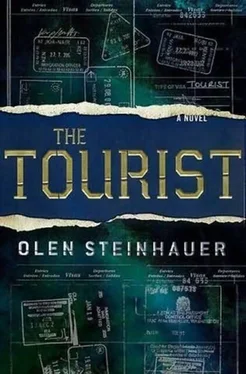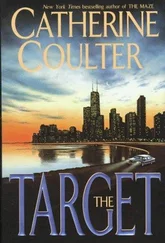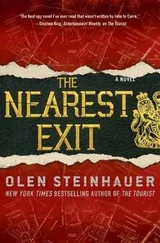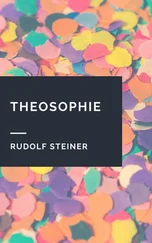The taxi worked its way through the morning traffic up First Avenue, then let her off on Raoul Wallenberg Walk. She hurried across the lawn, passing plainclothes security men and New York troopers. It was nearly nine. She cut through a long line of tourists that led to metal detectors and showed her Homeland ID to a Vietnamese guard. He passed her to two uniformed women who patted her down and went over every inch of her body with a handheld explosive detector.
The United Nations General Assembly building has a long, sixties-modern lobby, littered with paintings of past secretaries general, low leather couches, and placards with slogans and lists of upcoming events. Simmons found a spot beneath the suspended Foucault pendulum, knowing that Yevgeny Primakov would have to come to her, since she didn't have a photo of him. He apparently had one of her-this meeting place, according to Orbach, had been his idea.
As she stood there, looking expectant, the faces of the world passed by in the form of assistants and interns from all the UN countries. She remembered her last visit, not long after her divorce, when she thought that there was something special about this place. The warmth of internationalism had filled her, just briefly, and she'd even considered working for this amalgam of nations. Like most
Americans, though, in the years that followed she heard more about its failures than its successes, and when the Department of Homeland Security came calling, and the recruiter described how this new department wouldn't be hogtied by the red tape that plagued so many institutions, she succumbed to her innate patriotism.
"Look up," said an old man, smiling. His accent was Russian.
She peered up at the gold-plated sphere that swung directly from a wire.
"It's a nice thing to have around," said Primakov, clasping his hands behind his back and staring up with her. "It's the physical evidence that the planet rotates, despite how things feel where we're standing. It reminds us that what our eyes see and our senses feel isn't always the complete truth."
She stared at the mechanism a moment longer, just for politeness, then stuck out a hand. "I'm Janet Simmons, Homeland Security."
Instead of shaking, he brought her knuckles to his mouth; he kissed them. "Yevgeny Aleksandrovich Primakov of the United Nations, at your service."
When he let her hand go, she slipped it into her blazer pocket. "I wanted to ask about your son, Milo Weaver."
"Milo Weaver?" He paused. "I have two wonderful daughters- around your age, I believe. A pediatric surgeon in Berlin and a litigator in London. But a son?" He shook his head, smiling. "No son."
"I'm talking about the son you had with Ellen Perkins in 1970."
His broad, confident smile didn't falter. "Are you hungry? I missed my breakfast, which in America is a crime. The diner breakfast is America's great contribution to world cuisine."
Simmons nearly laughed. "Sure. Let's get some breakfast."
Together, they crossed the lawn again, Primakov sometimes nodding at others heading in the opposite direction, toting briefcases. He was in his element, a man at ease with his position in the world, even under the threat of a Homeland Security agent dredging up old secrets. He had a single nervous gesture, though: He sometimes raised a fleshy finger to his cheek and swiped at it, as if ushering away a fly. Otherwise, he was all old-world elegance in his tailored gray suit, blue tie, and perfectly fitting dentures.
The diner he'd promised turned out to be an overpriced nouveau American restaurant with a separate breakfast menu. When the hostess offered a window seat, Primakov licked his lips, swatted at his cheek, and suggested a booth in the rear of the restaurant.
He ordered the "Hungry Man" plate of scrambled eggs, toast, sausage, ham, and home fries, while Simmons stuck with coffee. Playfully, he accused her of trying to lose weight, "which is baffling, because you have a perfect figure, Ms. Simmons. If anything, you should add a few kilos."
She wondered when a man had last talked to her this way. Not in a while. She called over the waitress and ordered an English muffin.
Before the food came, they went through some of Primakov's particulars. He openly admitted to having risen to the rank of colonel in the KGB, staying on during its transformation into the FSB. By the midnineties, though, he had become disillusioned. "We kill our own journalists, you know that?"
"I've heard."
He shook his head. "It's a pity. But from inside, there's little you can do about it. So I considered my options and in 2000, the new millennium, decided to work for the world at large, rather than my own nation's petty interests."
"Sounds commendable," she said, remembering her own brief thoughts in that direction. "But the UN must be frustrating."
He raised his bushy brows and conceded with a nod that this was true. "The failures are what reach your newspapers. The successes- those are just boring, aren't they?"
The waitress returned with two warm plates. Once the old man had begun eating, Simmons said, "I want you to tell me about it. I'm not interested in digging up dirt. I just want to know who Milo Weaver really is."
Chewing, Primakov stared at her. "Right. That Milo person you mentioned."
She gave him the most endearing a smile she knew how to make. "Yevgeny. Please. Let's start with Ellen Perkins."
Primakov looked at her, then at his food, and then, with an exaggerated shrug, set down his utensils. "Ellen Perkins?"
"Yes. Tell me about her."
The old man flicked something from his lapel-a woman's hair, it looked like-then snatched at his cheek. "Because you're so charming and beautiful, I have no choice. Russian men are like that. We're too romantic for our own good."
One more endearing smile. "I appreciate it, Yevgeny."
So he began.
"Ellen was special. You have to know that first of all. Milo's mother wasn't just another pretty face, as you say in America. In fact, she wasn't really that beautiful, physically. In the sixties, the revolutionary cells of the world were full of long-haired angels. Hippies who stopped believing in peace, though they still believed in love. Most of them had no real conception of what they were doing. Like Ellen, they were from broken homes. They just wanted a new family. If they had to die, so be it. At least they'd die for a reason, unlike those poor boys in Vietnam." He used his fork to point at Simmons. "Ellen, though-she saw through the romance. She was an intellectual convert."
"Where did you meet?"
"Jordan. One of Arafat's training camps. She'd spent the last few years being radicalized in America, and when I met her she was inspired by the PLO and the Black Panthers. She was a bit ahead of her time, you see. At that time-sixty-seven-there was no one in America she could talk to. So, with a couple of equally disenfranchised friends, she showed up in Jordan. She met Arafat himself, as well as me. She was far more impressed by Arafat."
He paused, and Simmons realized she was supposed to fill in the silence. "What were you doing there?"
"Spreading international peace, of course!" A wry smile. "The KGB wanted to know how much money to spend on these fighters, and who we could recruit. We didn't really care about the Palestinians;
we just wanted to stick a thorn in America's great Middle Eastern ally, Israel."
"Ellen Perkins became a KGB asset?"
He swiped at his cheek. "That was the plan, wasn't it? But Ellen saw right through me. She saw that I didn't care as much about world revolution as I did about keeping my job. The more names I added to my roster of friendly warriors, the more secure my pension became. She saw that. She called me a hypocrite!" He shook his head. "I'm not kidding. She started listing the atrocities the Soviet Union had committed. The Ukraine famine, trying to starve West Berlin, Hungary in fifty-six. What could I say? I dismissed the Ukraine as a madman's mistake-Stalin's, that is. For Berlin and Hungary, I talked up counterrevolutionaries from the West, but Ellen had no time for my excuses. Excuses-that's what she called them."
Читать дальше
Конец ознакомительного отрывка
Купить книгу












